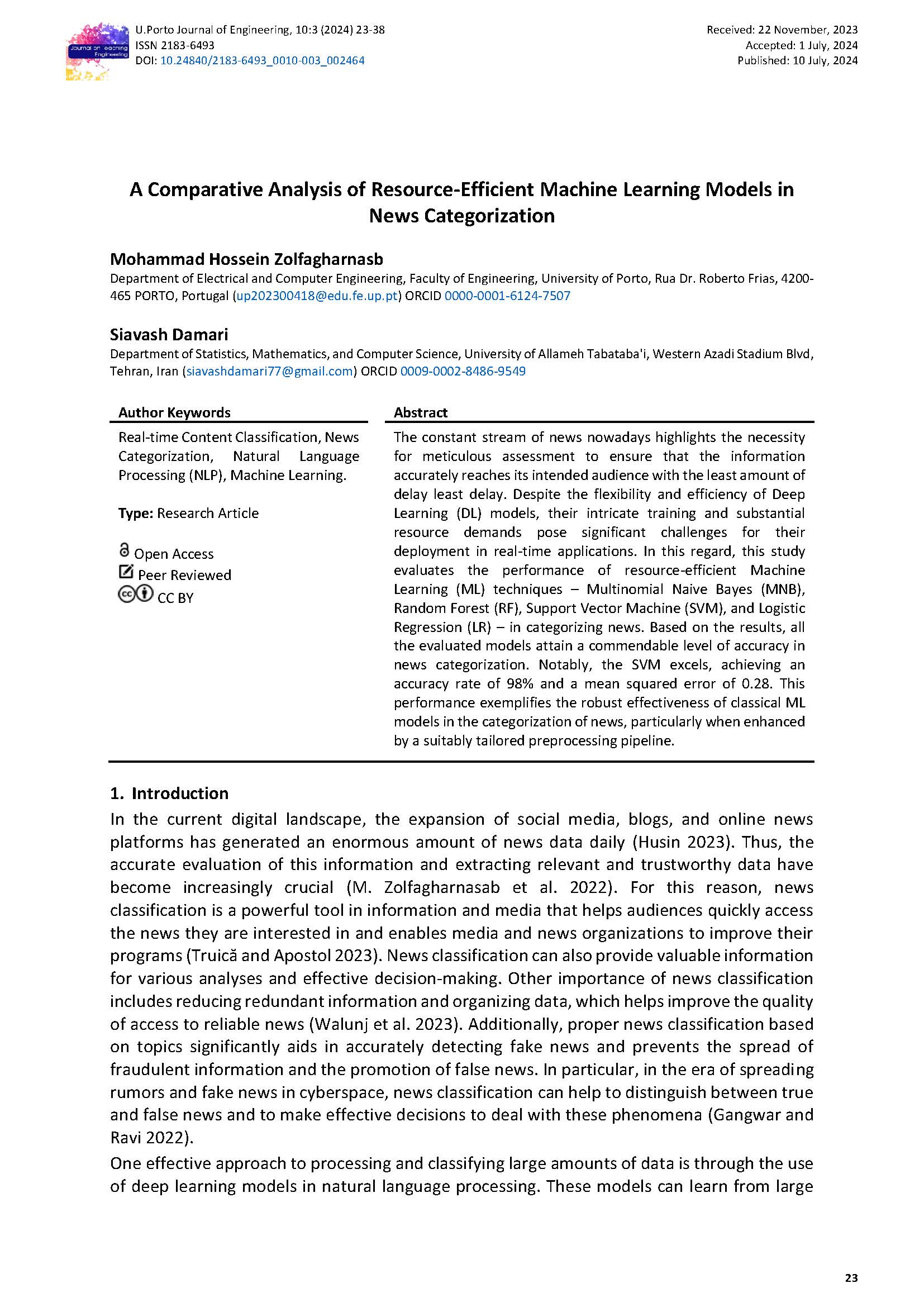A Comparative Analysis of Machine Learning Models in News Categorization
Main Article Content
Abstract
The constant stream of news nowadays highlights the necessity for meticulous assessment to ensure that the information accurately reaches its intended audience with the least amount of delay least delay. Despite the flexibility and efficiency of Deep Learning (DL) models, their intricate training and substantial resource demands pose significant challenges for their deployment in real-time applications. In this regard, this study evaluates the performance of resource-efficient Machine Learning (ML) techniques – Multinomial Naive Bayes (MNB), Random Forest (RF), Support Vector Machine (SVM), and Logistic Regression (LR) – in categorizing news. Based on the results, all the evaluated models attain a commendable level of accuracy in news categorization. Notably, the SVM excels, achieving an accuracy rate of 98% and a mean squared error of 0.28. This performance exemplifies the robust effectiveness of classical ML models in the categorization of news, particularly when enhanced by a suitably tailored preprocessing pipeline.
Downloads
Article Details

This work is licensed under a Creative Commons Attribution 4.0 International License.
Authors who publish with this journal agree to the following terms:
- Authors retain copyright and grant the journal right of first publication with the work simultaneously licensed under a Creative Commons Attribution License that allows others to share the work with an acknowledgement of the work's authorship and initial publication in this journal.
- Authors grant the journal the rights to provide the article in all forms and media so the article can be used on the latest technology even after publication and ensure its long-term preservation.
- Authors are able to enter into separate, additional contractual arrangements for the non-exclusive distribution of the journal's published version of the work (e.g., post it to an institutional repository or publish it in a book), with an acknowledgement of its initial publication in this journal.
- Authors are permitted and encouraged to post their work online (e.g., in institutional repositories or on their website) prior to and during the submission process, as it can lead to productive exchanges, as well as earlier and greater citation of published work (See The Effect of Open Access).

